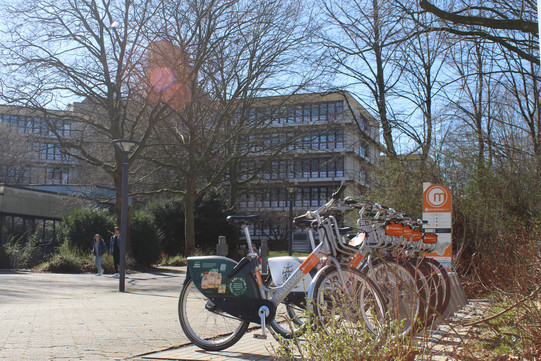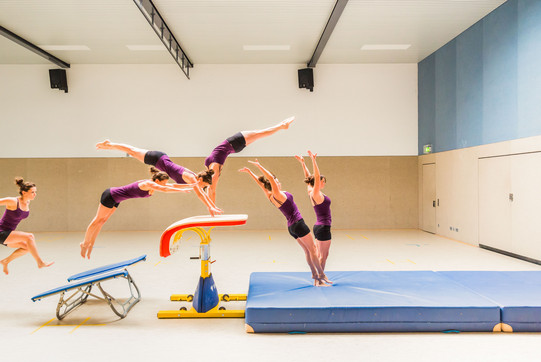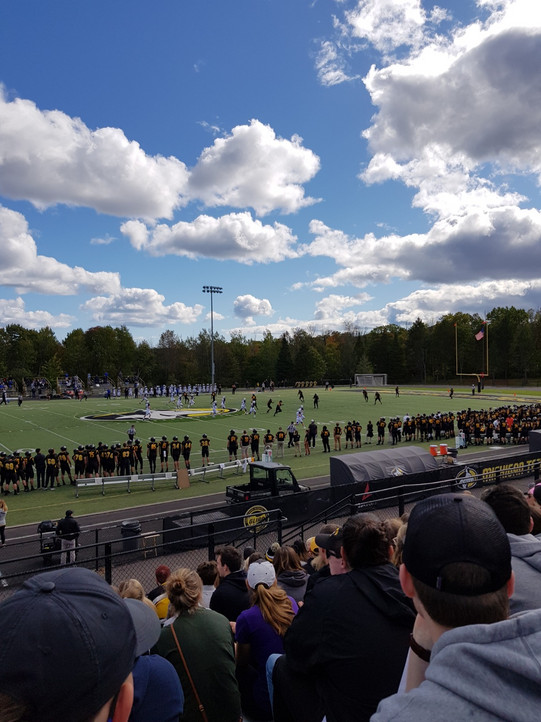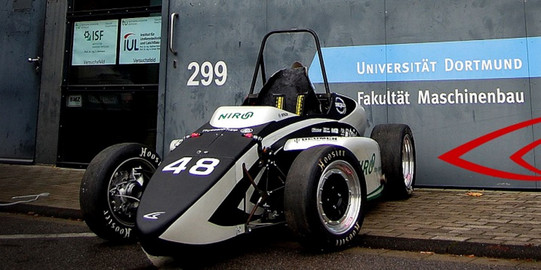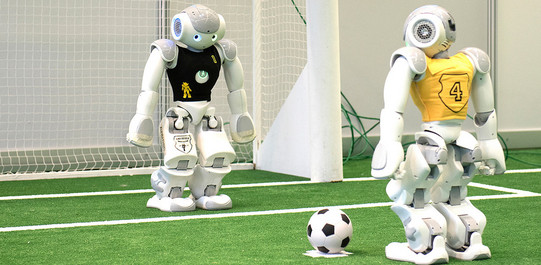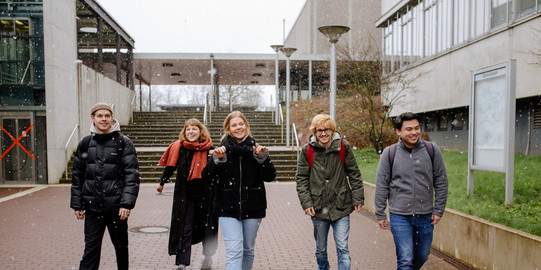Studying: A question of attitude?
On this page we want to give you an outlook on learning at university and which mindset will help you to overcome the upcoming difficulties. In the E-Room you will also find some tips for the start of your studies.
Challenges at the university
"Success is to be measured not so much by the position that one has reached in life as by the obstacles which he has overcome while trying to succeed" ~ B. T. Washington
Challenges at university are anything but fair, because everyone studies with different prerequisites. But at the end of the day, everyone has a comparable degree - so everyone has to take the same exam! Therefore, the most important consideration you have to make is: "Is my goal worth the effort?" You have to weigh your personal goal against your individual effort. Some may get through a lot of exams with little effort, while others have to study a lot to pass. That's the way it is. After all, you'll find a number of support services you can take advantage of.
Reach the goal...
What is the goal?
- First of all, you should enjoy your studies. Because only if it's fun will you overcome the challenges and learn.
- Gaining (life) experience is definitely an important thing. In your studies you start a new phase of your life and can enjoy new freedom with your own apartment, parties during the week and maybe your first real working student job. But with that also comes the responsibility to use some hours of your day to study on your own initiative. After all, you have to...
- ...pass exams. You can't do without that. Twice a year, at the end of each semester, there is an exam period. This means no more classes, but one thing above all: study, study, study! And then you should also find out how to prepare yourself most effectively for the respective exam, because not only a lot of time, but also a lot of concentrated work and practice is required to fight your way through the formula jungle at a speed sufficient for the exam. You will find out how to do this during the semester.
- The big goal at the end should be to become an engineer. The hard work during your studies will be rewarded at the end with a decent salary and an interesting and challenging job. If this may sound far away at first, it is okay. Experiences and friends can be reason enough at the beginning to get motivated for the subject.
On these pages and in the orientateering week we want to give you strategies to reach these four goals! Because if you are on track and studying is a challenging activity without being overwhelming, it will be fun: Dopamine rewards your brain for learning. Always remember "diligence beats talent when talent doesn't practice ;)"
If you realize that your goal might be a bit too high, we will be happy to advise you! Either contact us directly or check out our compilation here for all sorts of advice on university. There is also an annual information event for those who have doubts about studying.
Friends and network
Studying completely on your own is very hard, which is why study groups are usually formed at the beginning of the semester to help you with your studies. You can get to know your fellow students especially well during our orientateering week. Learning together (or discussing results, if you prefer to calculate alone) and motivating each other are the most important tasks of the study group. So, at best, find people who can motivate you if you can't do it yourself. You should also have a similar level, so that you face similar challenges that you discuss together. It is essential to solve all tasks independently, because this is the best way to prepare for the exam.
In addition, you should build up a network over time so that you are always kept up to date about internship registrations, information about the exam, etc. Due to the many chairs and institutions, it is difficult to bundle all information centrally and keep it up to date. Even if you cannot solve the problem with your study group, it may be possible to ask another study group how they solved it. You can also exchange experiences - "How was the exam for you?", "When did you take care of the bachelor thesis?" - contact with students from higher semesters can be very helpful. During the orientation week, you can meet mentors who will guide you around the campus.
The right mindset
The right mindset doesn't really exist at uni. Here are a few ideas about which mindset will help you at the beginning:
- In your studies you will be trained as an engineer: This has less to do with the job as an electrician. Also big tinkering is then rather in the spare time the case, if you are interested in it.
- Operating instructions, cooking recipes? No way. You will become an engineer and one day you will help to find solutions for the big problems of our time. Accordingly, it may be a bit abstract at the beginning, but it doesn't work without basics - the interesting application subjects are mainly located in the master's program.
- Study = party? Well. You will certainly find some time to party and, if you study smartly and distribute the exams, you will have quite some time off. You can enjoy that. So, yes, you can party, but only in your free time, which can be rarer in engineering studies than in other courses: But this way, your chances afterwards might be higher.
- There are credit points for all courses in the degree program. One CP corresponds to about 25 to 30 hours of work. This makes the study program a 40-hour week, which you can divide up freely within a semester, with the exception of the few compulsory courses. In the next chapter you will find some more information about this.
- The study program deals with the application of mathematics, so there will be a lot of that.
- Self-reliance is the most important thing in your studies: The professors don't care if you personally pass your exams. Accordingly, you have to motivate yourself!
- Asking questions is very important! There are many opportunities to do so in lectures, exercises and tutorials. Use them! It is best to write down questions and answers separately. If you are able to ask a question, you have already understood a lot and that is great!
When you need to get out for a bit
Balance and free time during your studies are very important. The often mentioned healthy work-life balance is something you should acquire over time. Playing sports, music, meeting friends, gaming - whatever you need to switch off. There are also great ways to spend your free time at the university:
- With Nextbike, you can rent two bikes for one hour for free and get to know Dortmund and its surroundings better. To do this, you need to register and submit your certificate of study.
- The university sports center offers a large number of courses where you can get to know other students, but also pursue many different sports. Among them are also very unusual sports and courses, which can be worth trying out. You have to pay a small amount of money for the sports card, sometimes there are additional fees for courses. If you want to try out a sport first, you can book the trial ticket at the beginning of the semester for less money. You can find more details on the university sports page (Hochschulsport).
- You want a full brain refresh? Then do a semester abroad, for which there are great projects. On the one hand, the faculty can help you find good partner universities, and on the other hand, there are other exciting opportunities to go abroad with the university. The best way to find out about these is to contact the International Office directly. The contact person for international affairs is responsible for the partner universities. The best thing to do at the beginning is to visit the information event abroad, which the faculty organizes together with the International Office.
Practice in your studies?
It has already been indicated above that there is little work in the lab or on actual projects during your bachelor studies. If you still have a need for practice, here are a few tips:
- Starting in the first semester: support theGet Racing racing team , which uses an interdisciplinary approach involving mechanical engineering, electrical engineering, business and, more recently, computer science to design their own race cars each year. It's worth visiting the team for hands-on practical experience and a feel for interdisciplinary work.
- From the second semester onwards: trying out your own skills at the various departments. As a student assistant (Hiwi) you can work directly on current projects and are paid accordingly. Since we are a small study program with a lot of research, we need many dedicated Hiwis like you!
- From the third semester on: As a tutor you can teach first-year students electrical engineering, programming and mathematics if you have done well in the exams. This is also paid.
- Many companies are always looking for working students so that you can gain immediate industrial experience, although they are particularly interested in longer-term work. Many job advertisements flutter in via our mailing list.
Written by Leon Marcel Gerigk March 2022
Semester schedule and procrastination
When is the best time to study? A few tips for the usual winter semester and how to get a grip on the arch enemy of the student - procrastination - can be found on the next two pages.







